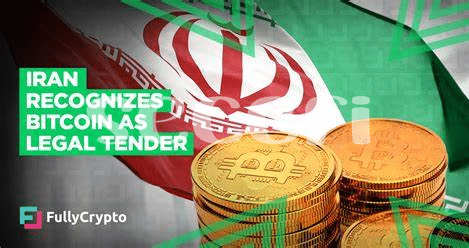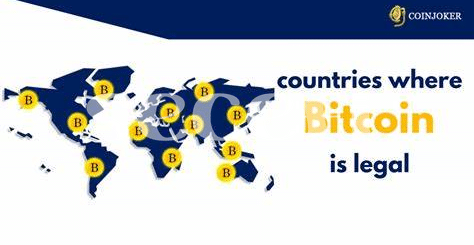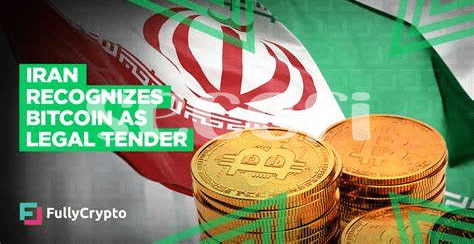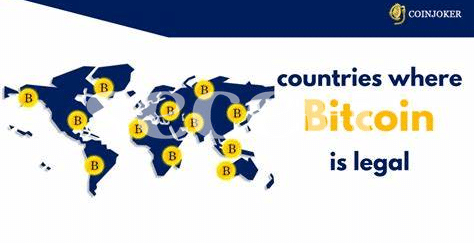Iran’s Current Stance on Bitcoin 🇮🇷

Iran’s approach to Bitcoin reflects a balancing act of caution and curiosity. While the country has not officially declared Bitcoin as legal tender, it has shown interest in exploring the potential benefits of this digital asset. The government has expressed willingness to regulate cryptocurrencies within its legal framework, signaling a measured openness to this evolving technology. This stance positions Iran at an intriguing crossroads, where traditional financial norms intersect with the disruptive force of decentralized currencies. As global conversations around Bitcoin continue to evolve, Iran’s current position sets the stage for potential future shifts in its approach to digital assets.
Factors Influencing Iran’s Cryptocurrency Decisions 💡
Factors influencing Iran’s decisions regarding cryptocurrency adoption include economic sanctions, a desire for financial independence, and technological advancement. Iran’s strained relationship with traditional banking systems and the potential benefits of utilizing digital currencies also play a significant role in shaping its stance on cryptocurrencies.
Moreover, the fluctuating value of Iran’s national currency, the Iranian Rial, has led the government to explore alternative financial solutions, with Bitcoin emerging as a potential contender. Additionally, the decentralized nature of cryptocurrencies offers a level of autonomy that aligns with Iran’s quest for economic sovereignty. Through a careful evaluation of these factors, Iran aims to navigate the complexities of cryptocurrency adoption and leverage the opportunities presented by the digital asset landscape.
Comparison of Bitcoin as Legal Tender or Asset 💸

Bitcoin’s dual nature as both a potential legal tender and a recognized asset presents a unique duality that challenges traditional definitions in Iran. While legal tender status would elevate Bitcoin’s official recognition and utility for transactions, treating it solely as an asset could provide more regulatory clarity and investment opportunities. The comparison between these two roles delves into the intricacies of financial policy and technological innovation, offering a glimpse into the evolving landscape of digital currencies and their place in Iran’s economic future.
Impact of Bitcoin on Iran’s Economy 📈

Bitcoin’s impact on Iran’s economy has been a subject of growing interest due to its potential to bypass traditional banking channels and enable international transactions. The decentralized nature of Bitcoin offers Iranians an alternative means of conducting business, especially in the face of economic sanctions. This digital currency has the potential to improve financial inclusion, facilitate remittances, and attract foreign investment. However, its volatile nature poses risks to Iran’s financial stability. Nevertheless, with proper regulations and strategic planning, Bitcoin could play a significant role in shaping Iran’s economic landscape in the years to come. For further insights on the real-world impact of legal recognition of Bitcoin, check out is bitcoin recognized as legal tender in Italy?.
Risks and Benefits for Iran in Adopting Bitcoin ⚖️
Bitcoin adoption in Iran presents both potential risks and benefits. On one hand, embracing Bitcoin could open up new avenues for financial transactions and global trade, circumventing traditional banking systems that are heavily influenced by international sanctions. This could provide a level of economic independence and financial inclusion for Iranian citizens. However, the volatile nature of cryptocurrencies poses significant risks, including potential market manipulation, money laundering concerns, and regulatory challenges. Balancing these risks against the potential benefits will be a critical consideration for Iran as it navigates the landscape of digital currency adoption.
Future Outlook for Bitcoin in Iran 🌍

Iran’s evolving approach to Bitcoin reflects a growing recognition of the potential benefits and challenges associated with digital currencies. As the global landscape of cryptocurrencies continues to shift, Iran is closely monitoring these developments to determine the best path forward. With increased regulatory clarity and technological advancements, the future outlook for Bitcoin in Iran suggests a narrative of cautious optimism tempered by ongoing evaluation and adaptation to emerging trends in the digital economy.
is bitcoin recognized as legal tender in Japan?
